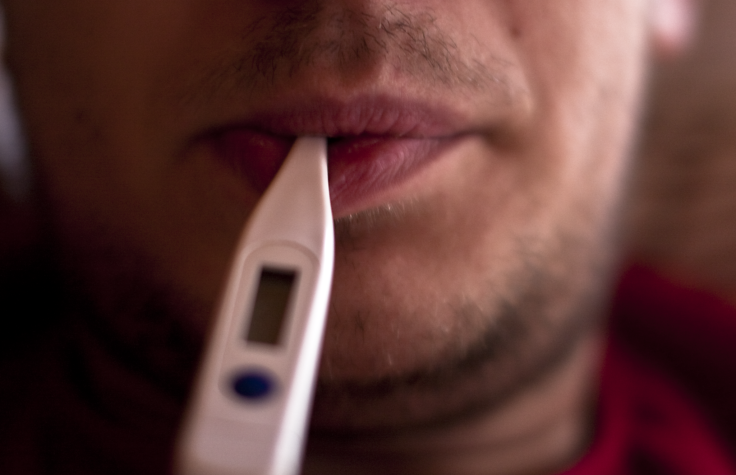Sneezes Spreading The Common Cold? If You Think Your Immune System Can Handle It, Chances Are It Can

You’re on your way to work, squished between strangers’ bodies on a tightly packed subway car, when someone sneezes. Germs midair, you immediately begin to calculate your risk of becoming sick. Psychology researchers from Carnegie Mellon University set out to measure just how good we are at predicting our own immune systems’ reactions to the common cold in these situations, and their study’s results reveal self-ratings of health could be more accurate than a doctor.
"There are some things that we know about our bodies that aren’t easily detectable by our physicians," said Sheldon Cohen, a psychology professor at Carnegie Mellon University, in a press release. For the study, published in Psychosomatic Medicine, researchers asked 360 healthy adults between the ages of 18 and 55 to assess their own health as “excellent, “very good,” “good,” “fair,” or “poor.” Next, they exposed participants to the common cold and monitored them for five days to track symptoms and the virus’s development within their bodies. Roughly one-third of the participants developed colds.
None of the participants reported poor health at the beginning of the study, and only 2 percent reported fair health — the researchers deliberately recruited healthy participants. However, those who reported their health was on the moderate side of the scale — fair, good, or very good — were more than twice as likely to develop a cold, compared to those who rated their health as excellent. It turns out patients were extremely good at predicting how their bodies would react after being exposed to the common cold.
Researchers believe self-ratings of health are effective because people become overtly aware of any cold-related sensations, feelings, and symptoms once they realize they’ve been exposed. They tune in to their bodies and listen more closely.
Researchers wondered if the participants’ accurate cold forecasts could have had something to do with their overall thought processes. Those who believed they had a strong enough immune system willed themselves to overcome any cold symptoms that emerged, while those who had less faith in their ability to fight off a cold eventually succumbed to developing one. These beliefs are rooted in a psychological theory known as “socioemotional development,” which suggests people are influenced by their beliefs and past experiences. Thus, people who believed they’d become sick actually did.
"Poor self-ratings of health have been found to predict poor health trajectories in older adults, including an increased risk for mortality," Cohen said. "Strikingly, these associations remain significant even after accounting for the effects of objective indicators of health, such as physical exams, medical records, and hospitalizations."
Researchers aren’t sure whether these effects occur because some people believe they’ll get sick or because they actually have a weak immune system, or a combination of both. What they do know is self-ratings of health may be just as effective as having a doctor evaluate symptoms, which is good because it empowers patients to take charge of their own care and be less reliant on what their doctor thinks about a runny nose.
Source: Cohen S, Janicki-Deverts D, and Doyle WJ. Self-rate Health in Healthy Adults and Susceptibility to the Common Cold. Psychosomatic Medicine. 2015.
Published by Medicaldaily.com



























